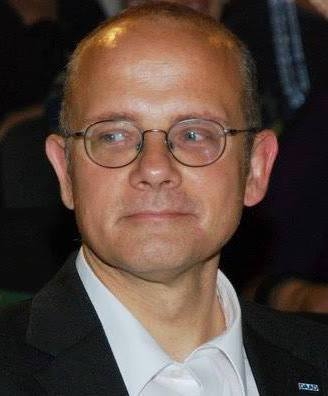- You have outlined a possible position for the Ukrainian establishment with regard to the Customs Union. But to what extent do you find the many pro-European statements of those in power sincere? At the end of the day, the movement towards the EU implies a consolidation of democracy and pro-European transformations inside the state, which, for many, may turn out to be undesirable.
A.U.: Of course, there are doubts concerning the sincerity of the statements made by many Ukrainian officials with regard to their country's movement towards the EU and its values system. Yet the idea of European integration is popular among the Ukrainian population, in all regions of the country, and this is to be reckoned with. Though European integration might be, for some members of the Ukrainian leadership, just a game, this game has already gone too far. In case they just throw up their cards, this would be costly in political terms. It will result in widespread disappointment.
As a matter of fact, I think that the negotiations with the EU, especially those concerning the implementation of the visa liberalisation roadmap, belong -- in the eyes of many people -- to the few positive aspects that are left, in the policies of today's authorities. These negotiations still instil some hopes, and offer some prospects for the future of Ukraine . If the government and the Party of Regions are unsuccesful in bringing Ukraine close to the EU, that will result in a further loss of their popularity. If, on the other hand, they indeed manage to sign the Agreements with the EU, they will be able to say: "See, we have made a breakthrough in the relations with the EU, we are on our way to Europe ." I suspect that such a calculation is exactly what drives the current authorities' seemingly strong desire to conclude the negotiations successfully.
- And what does the EU expect and wish? Does it have any geopolitical plans regarding Ukraine , and should the EU have such plans at all?
A.U.: The EU is split on these issues. On the one hand, there is a clear desire to make Ukraine part of Europe - if not (yet) an EU member state, but a state that will follow the European model of development, and will form a part of a common security and trade zone in and around Europe. This is basically what the European Neighbourhood Policy is about. But on the other hand, there exists a different geopolitical paradigm, namely a need for balanced relations with Russia -- a desire also conditioned by security and economic considerations. Moscow is very sensitive about Ukraine , and many EU states take this into account. An illustration of this position was the refusal to offer Ukraine and Georgia a NATO Membership Action Plan at the 2008 NATO Bucharest summit. This refusal came from influential EU member states that, for better or worse, argued against the Action Plan for the two countries.
- The NATO issue is clear, this is a security issue. But what threat does Ukraine 's rapprochement with the EU or joining the EU pose to Russia ?
A.U.: The Moscow political elite's change of mood toward the EU after the start of the Eastern Partnership (EaP) initiative in 2009 speaks volumes. Russian analysts and politicians have begun to consider the EU as a competitor for influence in the EaP's part of the post-Soviet space. The idea of a new "gathering of the lands" and of a renewal of some kind of empire, even if in a non-institutionalised form, is still alive in Russia . This is why I am afraid that, in the course of Ukraine 's further rapprochement with the EU, the tensions between the EU and Russia may grow - unless Russia itself changes, leaves behind the imperial paradigm, and stops defining her core national interests in terms of a revival of her former spheres of influence.
- Looking at the EU-Ukraine-Russia triangle, the situation does not look encourang: Russia seems to be against Ukraine joining the EU and the EU is currently also unwilling to discuss this issue, while in Ukraine the authorities' behaviour with regard to European values spawn doubts. In what "angle" of this triangle should the radical change take place in the first instance, in order to change the situation for the better?
(Note: You can view every article as one long page if you sign up as an Advocate Member, or higher).





